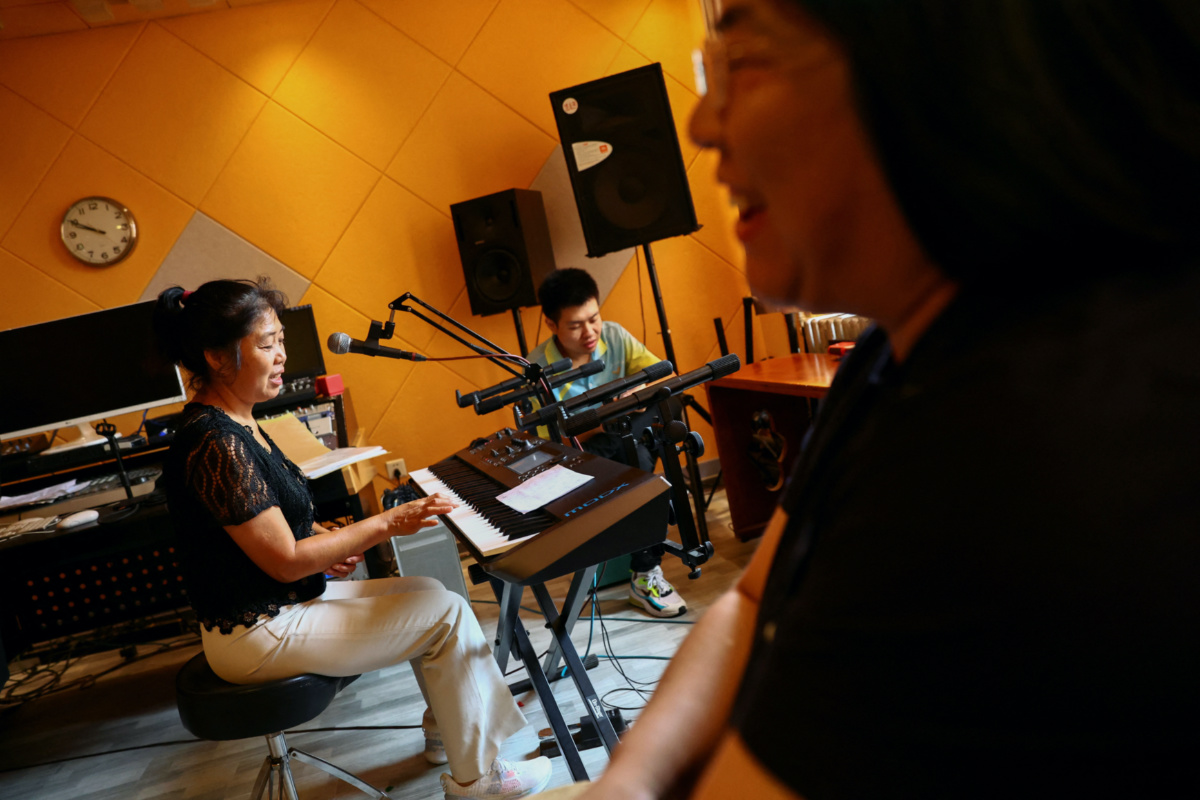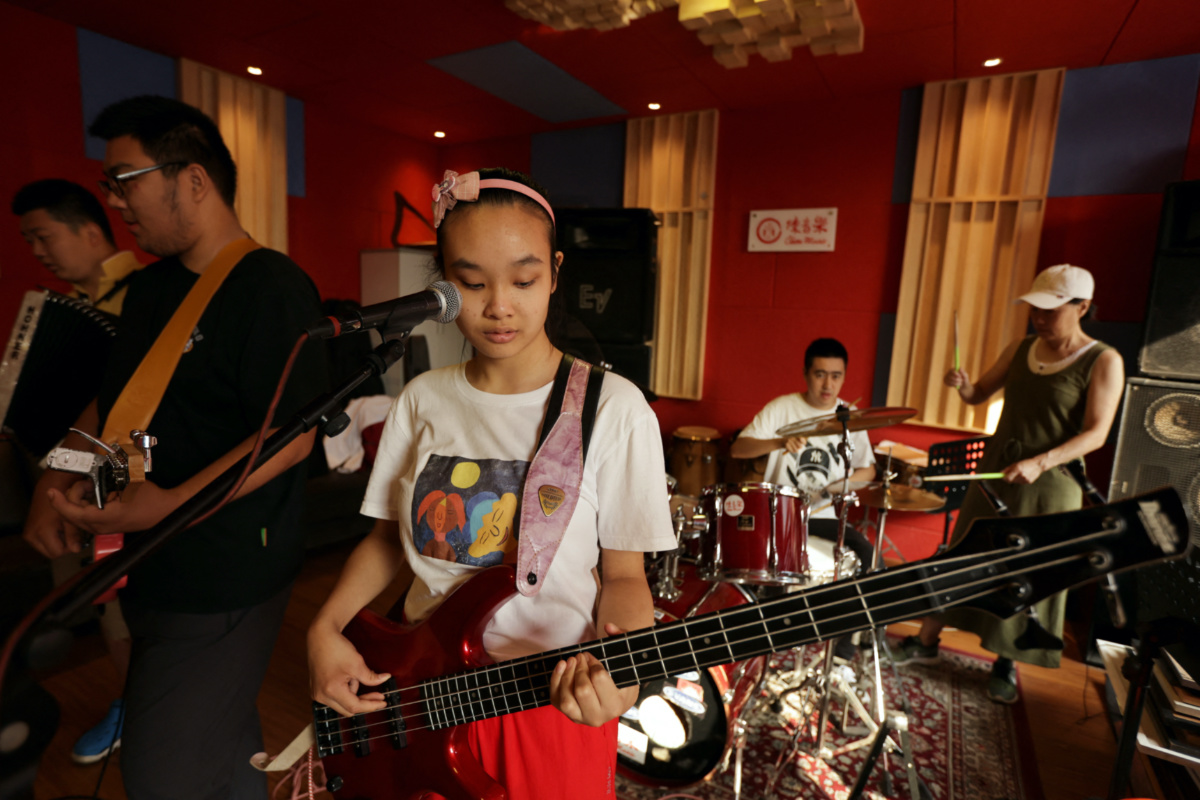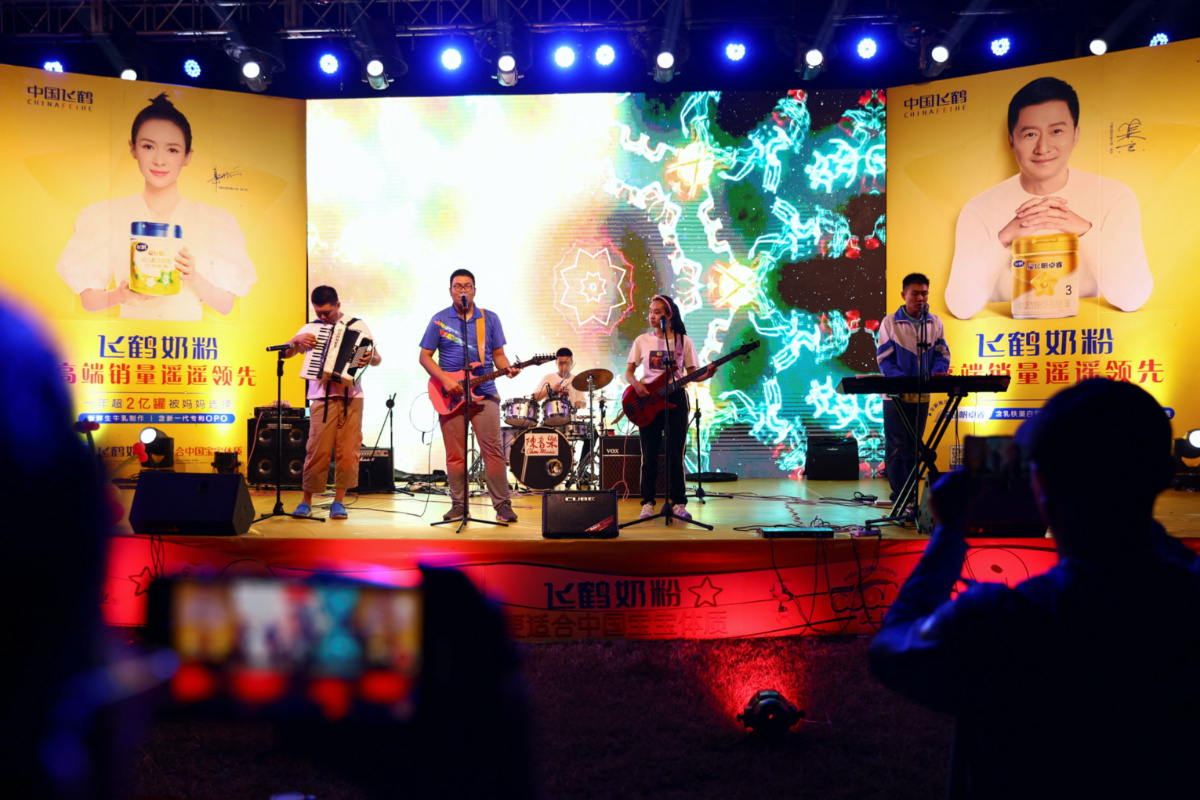
TINGSHU WANG and JOSH ARSLAN, of Reuters, reports on how Beijing-based Chen’s Studio is helping young adults with autism…
Beijing, China
Reuters
Almost three years of pandemic restrictions have been hard for 23-year-old Chinese villager Zu Wenbao, but thanks to Beijing-based Chen’s Studio, music has become his saving grace.
Zu is one of the 14 million people in China who have autism spectrum disorder, a developmental disability caused by differences in the brain. Despite laws to ensure the integration of people with autism, many in China know little about the disorder and support remains lacking, experts say.

Zhao Guorong, 59, plays the keyboard as she performs with her son Zu Wenbao, 23, and Tian Yi, 44, during a practice session of the band formed by the mothers of Star Kids, called Mums of Star Kids, at the music studio of 38-year-old teacher Chen Shensi in Beijing, China, on 21st August. Almost three years of pandemic restrictions have been especially hard for Zu, who has autism spectrum disorder, but thanks to Chen’s Studio, music has become his saving grace. PICTURE: Reuters/Tingshu Wang
Autism has meant Zu was unable to fit in at school or among other young people in his home village of Bei’an in north-east China’s Heilongjiang Province. All that changed when he started learning music free of charge at Chen’s Studio, which started lessons for people with autism just as the pandemic began.
Zu, who is non-verbal, joined the five-studio Beijing school in 2020. He has since learned to play the keyboard, and sings along with the four other members of the “Star Kids” band their teacher, Chen Shensi, set up last year for people with autism.
“Without music, without these lessons, he wouldn’t have anything.”
– Zu Wenbao’s mother, Zhao Guorong
“Without music, without these lessons, he wouldn’t have anything,” said Zu’s mother, Zhao Guorong, who travels with her son every Sunday for two hours on three different buses from their current home on the outskirts of Beijing so that he can attend class.
“The village youngsters all go to work or school, so without music and the band, he wouldn’t have any peers to socialise with,” she added. “Even though the kids taking music classes are younger than him and half his size, they all take care of him like he’s their brother.”

Wu Jiayu, 18, plays the bass during a practice session with members of her band Star Kids, who like her are all adults with autism spectrum disorder, at a music studio belonging to 38-year-old teacher Chen Shensi, in Beijing, China, on 18th September. “It’s just difficult for them to communicate normally with other people, let along work in a typical job, but they might be able to make a living by being an artist,” Chen said. “To some degree, I think music might be their language.” PICTURE: Reuters/Tingshu Wang
China has passed several laws to ensure inclusion of people with autism, most recently in September to standardise autism screening, diagnosis and intervention for young children.
While support has improved over the past 20 years, millions of children still lack the behavioural therapy and educational support they need, experts say.
People with autism tend to find it difficult to get jobs, and the music school’s founder Chen hopes he can change that by giving his students a way to earn a living: the Star Kids band has already performed several concerts at events held at camp sites on the outskirts of Beijing.
Chen says he knew very little about autism before he started teaching a bass player with the disorder in 2020.
When COVID-19 lockdowns and restrictions on movement curtailed his regular music lessons, Chen started the free-of-charge lessons for people with autism. “COVID has been hard, and I wanted to do as much as I can to give them joy through music,” he said.

Zu Wenbao, 23, and members of his band Star Kids, who like him are all adults with autism spectrum disorder, perform onstage at Renji Hotel, a campsite on the outskirts of Beijing, China, on 11th September. Zu, who is non-verbal, started learning music free of charge at Chen’s Studio, which started lessons for people with autism just as the pandemic began. He has since learned to play the keyboard, and sings along with the four other members of the Star Kids band their teacher, Chen Shensi, set up last year for people with autism. PICTURE: Reuters/Tingshu Wang
Chen admits he was very frustrated at first with his students because he had to repeat himself many times. Disciplining the class was also tough, but eventually, the students started communicating better with him and each other.
“It’s just difficult for them to communicate normally with other people, let along work in a typical job, but they might be able to make a living by being an artist,” he said.
“To some degree, I think music might be their language.”






